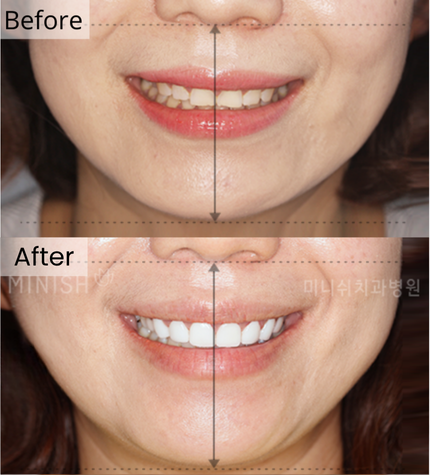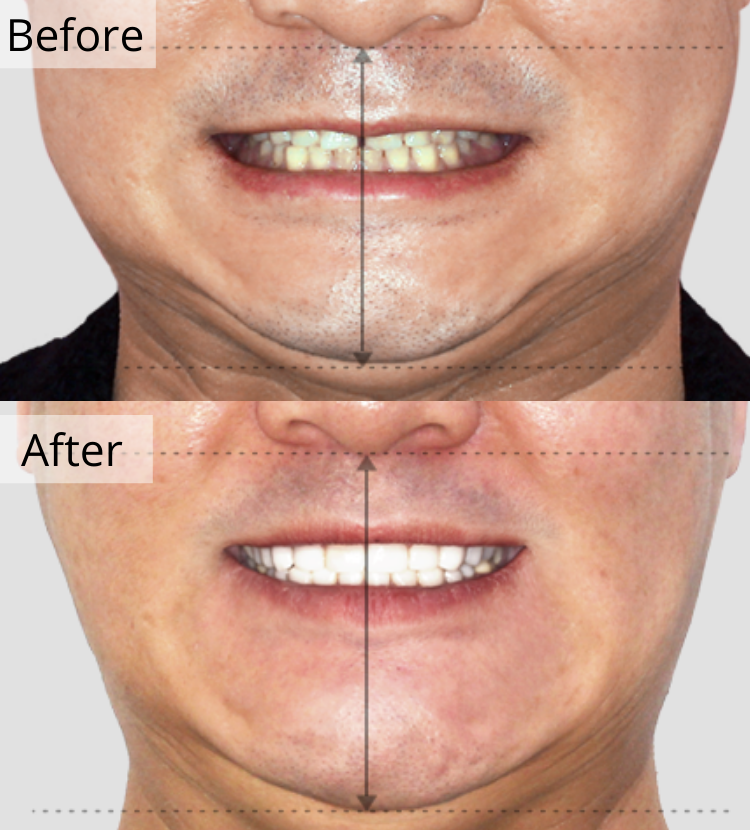Bruxism and TMJ Treatment in Korea
Bruxism (teeth grinding) and temporomandibular joint (TMJ) disorders are common but lesser-known dental disorders. If left untreated, Bruxism and TMJ disorders can lead to problems such as joint dysfunction, tooth pain, and periodontal disease. Here at MINISH Dental Hospital we have a specialist who specifically only deals with these disorders.

MINISH Bruxism and TMJ Treatment
Do I Have Bruxism or TMJ Disorder?
Are you concerned that you may be suffering from Bruxism or TMJ disorder? This simple self-diagnosis guide can be followed in order to determine the likelihood of you having either Bruxism and TMJ.

Bruxism

TMJ Disorder
Dental Symptoms of Bruxism
Bruxism, also known as teeth grinding, can be caused by habits like repeatedly clenching your teeth, both while sleeping and during the day. Sleep-related bruxism, in particular, can be difficult to recognize and can lead to an inability to control the force of the bite, putting significant strain on the teeth, gums, and joints.

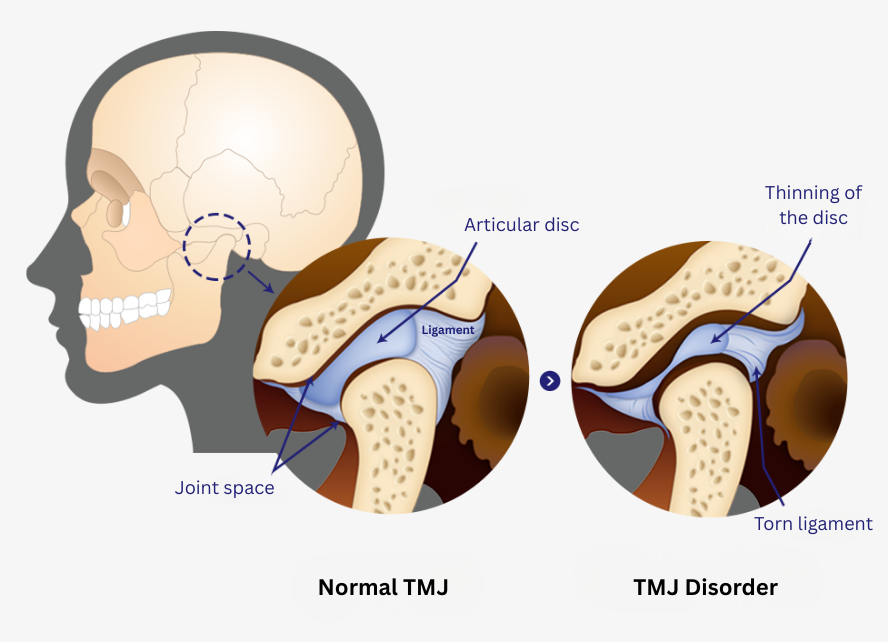
Symptoms of TMJ Disorder
TMJ disorder refers to a structural or functional disorder of the temporomandibular joint (TMJ). Inflammation or dislocation of the joint can cause pain and difficulty opening the mouth. Initially, the only symptom is a clicking sound when opening or closing the mouth. However,
as the disc gradually deforms, it can lead to difficulty opening the mouth and pain.
MINISH Bruxism and TMJ Treatment
Bruxism & TMJ Treatment Options
MINISH Dental Hospital treats bruxism and TMJ disorders according to the type of joint disorders and degree of symptoms. Treatments include medication, Botox, splint, and teeth malocclusion treatment.

TREATMENT 1
Medication/Physical Therapy
Combined with physical therapy and medication, it is administered to patients with early myofascial pain or who simply want to get rid of symptoms.

TREATMENT 2
Botox Injection Therapy
The treatment has an immediate effect, weakening muscle strength and reducing muscle thickness, reducing the side effects of bruxism. If necessary, 3-4 more injections may be needed.

TREATMENT 3
Dental Splints
Splints stabilize muscles and double the effectiveness of Botox. If bruxism continues after the treatment, splints will relieve tooth damage caused by bruxism. Splints also promote the recovery of altered tissue by reducing pressure on the TMJ and discs.
MINISH Bruxism and TMJ Treatment
Bruxism and TMJ Treatment Process at MINISH
MINISH Dental Hospital will conduct a pre-examination to create a suitable treatment plan for you. Regular checkups are essential for TMJ treatments because precise adjustments by the medical staff are required to accomplish the main purpose of treatment.
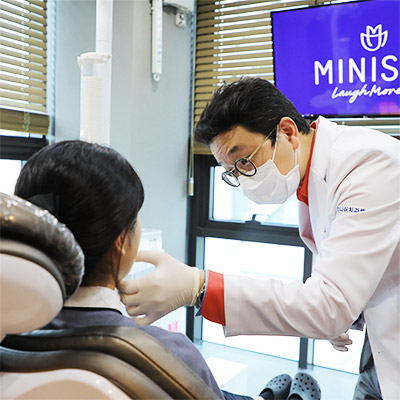
STEP 1
Oral Diagnosis
Individual oral condition assessment & medical examination.
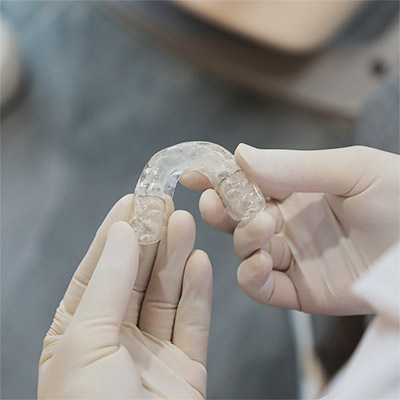
STEP 2
Botox & Splint Production
Application of Botox and creation of personalized devices after teeth occlusion analysis.
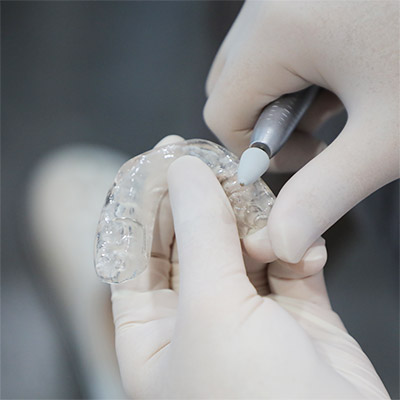
STEP 3
Device Adjustment
Restoration of canine function to reduce bruxism muscle strength.
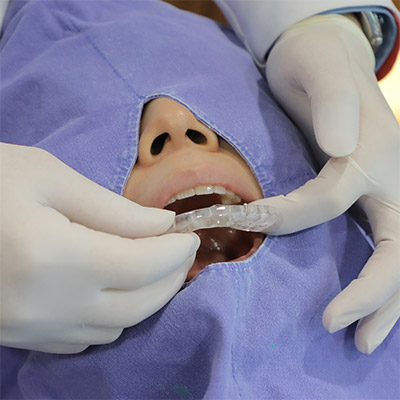
STEP 4
Symptom Care & Device Checkups
Evaluation of bruxism symptoms and improvements, checkups, and periodic adjustment of devices.
MINISH Bruxism and TMJ Treatment
Bruxism & TMJ Treatment Before & After
Frequently Asked Questions
What are the common symptoms of bruxism?
Common symptoms of bruxism include tooth damage (abrasion), tongue pressure, temporomandibular joint (TMJ) disorder, tooth fractures, and gum disease.
How can I self-diagnose temporomandibular joint (TMJ) disorders?
You might have a TMJ disorder if you experience symptoms such as your jaw not opening completely, clicking or noise when you open your mouth, headaches caused by jaw tension, neck and shoulder pain, misalignment of upper and lower teeth, grinding your teeth during sleep, or recurring headaches.
What treatment options are available for bruxism and TMJ disorders at MINISH Dental Hospital?
MINISH Dental Hospital offers several treatments, including medication combined with physical therapy, botulinum toxin (Botox) injection therapy to reduce muscle strength and thickness, and dental splints designed to stabilize muscles and protect teeth from damage caused by bruxism.
What is the treatment process for bruxism and TMJ disorders at MINISH Dental Hospital?
The treatment process includes an oral diagnosis to assess individual conditions, administration of Botox and fabrication of customized splints, functional adjustments to restore jaw balance and reduce muscle tension, followed by ongoing monitoring and adjustments through periodic checkups.

